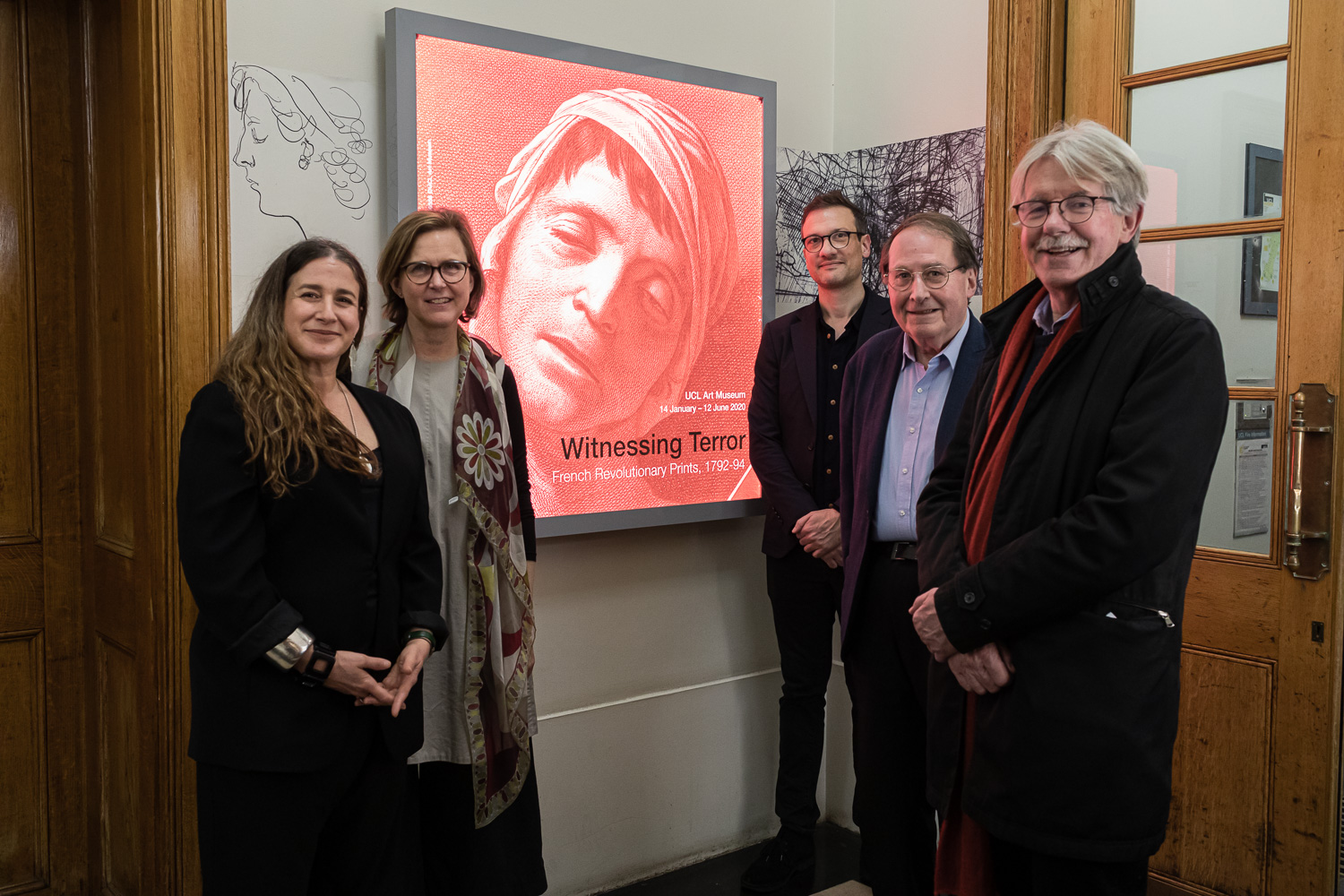 Photo © Hydar Dewachi
Photo © Hydar Dewachi
MARCH UPDATE: This Exhibition is currently closed due to the UK-wide restrictions in response to the COVID-19 pandemic.
A new exhibition, ‘Witnessing Terror: French Revolutionary Prints,1792-4‘, opened its doors to the public on 27 January 2020. It will run through to 12 June 2020 at the UCL Art Museum in central London. The exhibition draws on the Art Museum’s very rich collection of prints from the Revolutionary decade. It explores contemporary reactions to the Terror (1793-94) through a sampling of a wide range of visual and material sources: paper money, passports, maps and placards as well as a range of prints, including striking images of the murdered politician Jean-Paul Marat. The latter provided the source for the exhibition poster, which you can see in the photograph above (taken on the opening night) along with, from left to right: Dr Nina Pearlman (Head of UCL Art Collections), Dr Andrea Fredericksen (Curator, UCL Art Museum), and the three curators of this exhibition, Dr Richard Taws (UCL), Professor David Bindman (UCL) and Professor Colin Jones (QMUL).
After close discussion between the Elbeuf project and UCL (and with Colin Jones acting as a co-curator), a series of translated quotations from the Duchess of Elbeuf’s Letters were selected to run through the exhibition as an additional exhibit and to offer a thread of contemporary commentary. This is the first time any selection of her writing has been presented to the general public since she put pen to paper over two hundred years ago. Her astringent and frankly counter-revolutionary testimony is all the more intriguing in that for the period of the Terror she lived at the heart of Paris close to the Tuileries palace where the country’s elected representatives met daily in the National Convention.
The exhibition is free. It is open Tuesday-Friday weekly from 1.00 p.m.to 5.00 p.m.
MARCH UPDATE: This Exhibition is currently closed due to the UK-wide restrictions in response to the COVID-19 pandemic.
